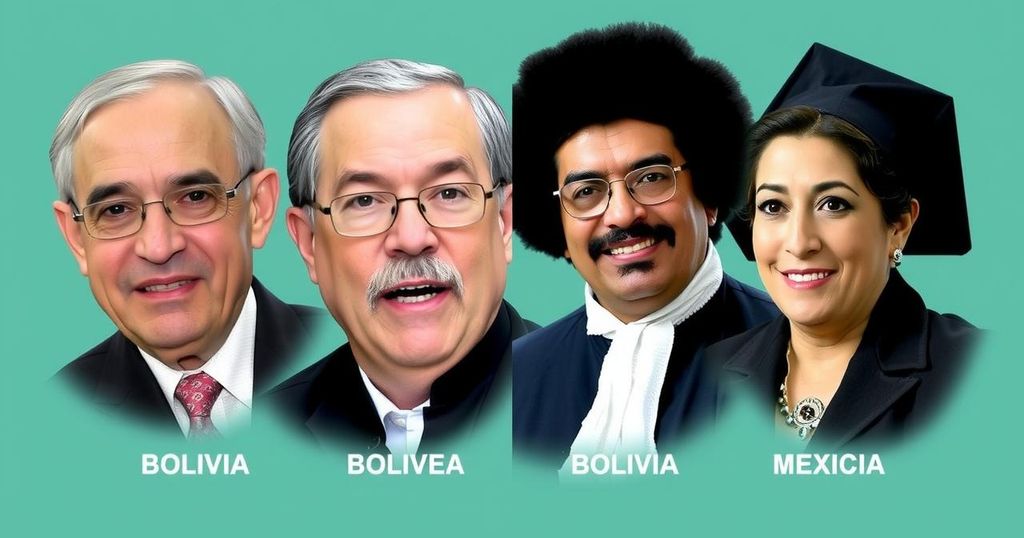Bolivia’s Judicial Elections: Lessons for Mexico’s Upcoming Reforms
Bolivia’s judicial elections illustrate a problematic electoral system that has rendered its judiciary politically influenced and ignited voter apathy. As Mexico prepares for similar reforms, Bolivia’s experience provides crucial insights into the implications of popular voting for judicial appointments and the potential threats to democratic integrity.
Bolivia recently held a controversial popular vote for the election of senior judges, a process that has drawn criticism and apathy from voters. Despite being prohibited from campaigning explicitly, political figures displayed their imagery in creative ways, inadvertently highlighting a system that many do not support. With elections also on the horizon for Mexico as they consider adopting a similar judicial election model, insights from Bolivia’s experience could provide essential lessons regarding the integrity and functionality of such a system.
Historically, Bolivia’s judicial elections have transformed what were once impartial courts into political battlegrounds. Mandatory voting and public disillusionment are evident, with many citizens admitting to being unfamiliar with the candidates on their ballots. The shift from a quality-based judicial nomination system to a political one has been criticized by experts worldwide, who argue that such a practice could undermine democracy and foster political manipulation. As Bolivia embarks on its third round of judicial elections, voter turnout is expected to remain low, reflecting widespread disenchantment.
The forthcoming judicial elections in Mexico, influenced by President Andrés Manuel López Obrador’s reforms, echo Bolivia’s experience, prompting Mexican officials to observe Bolivia’s vote for potential lessons. Bolivia’s elections mark a pivotal moment in a broader struggle for Ghana’s democracy, reflecting the importance of understanding the associated risks of political interference within the judiciary.
Among the concerns regarding Bolivia’s system are the extent to which judges become politically aligned and the potential for judicial abuse of power. Historical precedents reveal that the judiciary has been manipulated for political gain, with critical rulings reflecting party loyalty rather than public interest. With an upcoming political schism evident between current President Luis Arce and former President Evo Morales, scrutiny of the elections intensifies amid claims of power struggles and allegations of judicial overreach.
As Bolivia seeks to stabilize its judicial elections, policymakers, especially in Mexico, are evaluating the ramifications of adopting similar changes. The urgency for reforms that introduce transparency and accountability is paramount, to prevent the courts from being perceived as political branches rather than impartial institutions.
Electing judges through popular vote is an unusual practice, present only in Bolivia and set to be implemented in Mexico. This electoral system arose from attempts to create a more democratic judiciary; however, it has faced significant criticism. Observers have pointed out that such elections can lead to politicized judicial branches, which may not serve the public or uphold democratic principles as intended. Bolivia’s recent judicial elections highlight recurring issues of voter apathy and the manipulation of the judiciary, offering pivotal lessons for Mexico as it approaches its fundamental reforms.
The recent judicial elections in Bolivia reveal significant challenges surrounding the electoral process for judges. With widespread voter apathy and public distrust in the system, the implications extend beyond Bolivia to nations like Mexico, which is considering adopting similar reforms. Both political leaders and citizens must critically evaluate the impact of political affiliations within the judiciary and strive for enhancements in transparency and accountability to ensure fairness in the electoral process and judicial independence.
Original Source: www.newspressnow.com




Post Comment